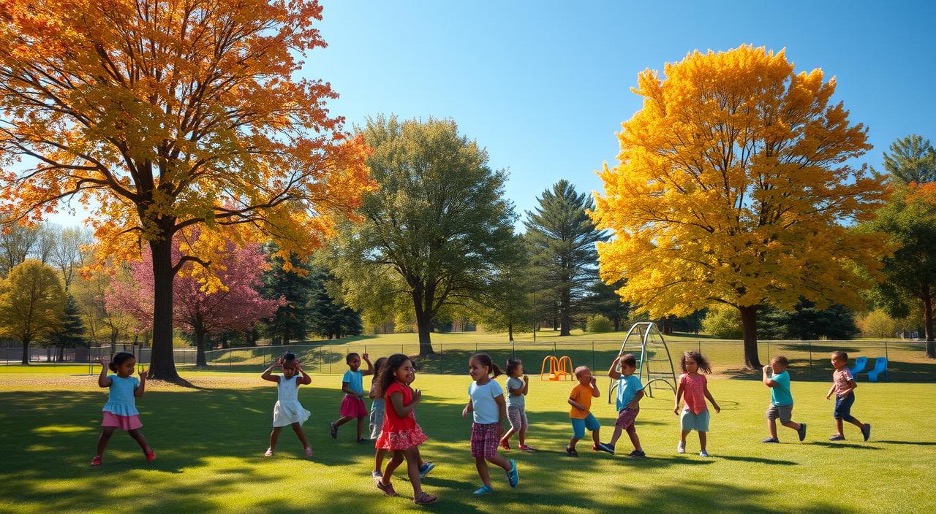Divorce can deeply affect a family, especially children. Studies show kids from divorced homes are more likely to drop out of school and face health issues. Teens in single or blended families might need more psychological help than those in intact families.
Things like constant fighting, emotional struggles, financial changes, and new partners can hurt kids. But, there are ways parents can protect their children during this tough time. They can use strategies to keep their kids safe and support their well-being.
Understanding The Impact Of Divorce On Children
Divorce can deeply affect children emotionally. They often feel as intense as their parents do during this time. The way kids react can change a lot, depending on their age and how they are growing.
Recognizing The Signs Of Emotional Distress
Young kids might act younger, become very attached, or cry a lot. Older kids might have nightmares, do poorly in school, or feel sick. They might also get angry, pull away from friends, or take risks. These behaviors come from fear of being left out, worry about changes, and feeling guilty.
Factors Contributing To Negative Impacts
Several things can make divorce hard on kids. These include constant fights between parents, less attention from parents, and moving around a lot. Studies show kids from divorced homes are more likely to take risks, like smoking or using drugs.
| Impact | Statistic |
| Increased risk of risky sexual behavior, living in poverty, and experiencing family instability | Offspring of divorced/separated parents are 1.5 to 2 times more likely to experience these outcomes. |
| Over-representation in the mental health system | Children whose parents divorce are over-represented in the mental health system. |
| Socioemotional problems | More socioemotional problems are associated with parental separation among white children in the US compared to black or Hispanic children. |
Divorce can make kids feel many emotions, like sadness, anger, confusion, and worry. They might feel more sensitive and need a way to share their feelings. Also, adjusting to new family setups, homes, schools, and friends can be tough. It can affect their happiness and well-being.
Strategies For Shielding Children From Harm
When parents decide to go their separate ways, it is crucial to prioritize the well-being of their children. Children whose parents are undergoing divorce are statistically more likely to have emotional and behavioral problems, as well as struggles in school. To shield these young ones from the potential harm of divorce, parents can employ various strategies.
Encouraging Positive Relationships With Both Parents
It is vital for children to maintain healthy relationships with both parents during and after the divorce process. Parents should avoid using their children as messengers or sounding boards for their own grievances. Instead, they should work to facilitate open communication and shared responsibility for the children’s upbringing. Cooperative Parenting and Divorce programs can teach effective communication and conflict-resolution skills, which can benefit the children by modeling positive behavior.
Maintaining Routines And Stability
Preserving daily routines, such as mealtimes, bedtimes, and extracurricular activities, can provide a sense of security and normalcy for children during this turbulent time. Parents should also be mindful of introducing new partners slowly. They should ensure the children feel safe and validated in their changing family dynamics.
Managing Conflict And Communication
Unrelenting parental conflict is the single most common cause of poor adjustment in children following divorce. By working to manage and resolve conflicts, parents can create a more relaxed home atmosphere. This reduces the stress and emotional upheaval experienced by their children. Seeking mediation or legal action, such as modifying custody orders or implementing supervision measures, can also help protect children from harmful situations during the divorce process.
By maintaining positive relationships with both parents, preserving daily routines, and managing conflict effectively, parents can shield their children from the potential harm of divorce. This helps them navigate this challenging transition with resilience and emotional well-being.
| Strategies | Benefits |
| Encouraging Positive Relationships with Both Parents | Reduces emotional and behavioral problems, improves academic performance |
| Maintaining Routines and Stability | Provides a sense of security and normalcy, helps children feel safe |
| Managing Conflict and Communication | Creates a more relaxed home atmosphere, reduces stress and emotional upheaval |
The Benefits Of Divorce Mediation
Divorce mediation is a way to solve problems together, not in court. It helps keep children safe from toxic parental conflict. This way, parents can make plans that change as the family grows.
Studies show mediation leads to happier families and better outcomes for kids. It focuses on the kids’ needs, helping parents keep them safe during separation.
Reduced Exposure To Toxic Conflict
Mediation tries to minimize conflict between spouses. This protects children from the stress of court battles. It helps parents talk better and find common ground.
Child-Centric Perspective
Mediation puts the kids first, focusing on their needs. Mediators help parents make plans that support their children. This makes the transition smoother.
Customized Co-Parenting Agreements
Mediation lets families create tailored co-parenting agreements. This means plans that really fit the family, not just what the court says.
| Mediation Benefits | Traditional Divorce |
| Reduced conflict and stress for children | Higher likelihood of exposure to toxic conflict |
| Customized co-parenting agreements | One-size-fits-all court-imposed solutions |
| Faster and less expensive process | Longer and more costly legal battles |
| Preserves post-divorce relationships | Often leads to more adversarial relationships |
When families need help in mediation, consulting experienced divorce lawyers Calgary can help ensure that parenting arrangements prioritize your children’s well-being while minimizing conflict between parents.
Conclusion
Protecting children’s well-being is key when parents go through a divorce. Learning how to co-parent well, managing conflict, and keeping routines stable are crucial. Also, considering divorce mediation can help a lot.
By focusing on the kids’ needs, families can come out stronger after a divorce. Co-parenting that puts the kids first helps them stay connected with both parents. It also reduces conflict, making the transition easier for everyone.
Divorce mediation adds a child-focused approach and agreements that fit each family’s needs. This way, parents can support their kids through this tough time. With the right steps, families can navigate divorce and help their kids do well in the future.
FAQ
How does divorce impact children?
Studies show kids from divorced homes are more likely to drop out of school and face health issues. Teens in single-parent or blended families are 300% more likely to need psychological help than those in intact families.
What are the common emotional reactions of children during a divorce?
Kids often reflect their parents’ feelings during a divorce. Young ones might regress, cling, or cry a lot. Older kids might have nightmares, do poorly in school, or act out.
What factors contribute to negative impacts on children during a divorce?
Negative impacts can come from ongoing fights between parents, emotional struggles, financial changes, and new partners. These can all affect kids during and after a divorce.
How can parents support their children’s emotional well-being during a divorce?
Parents should keep kids connected with both parents and avoid using them to send messages. They should manage money and child support well, keep routines, and introduce new partners slowly. It is also key to talk openly about feelings and try to end conflict in co-parenting.
What are the benefits of divorce mediation for children?
Divorce mediation helps avoid toxic conflict and keeps the focus on the kids’ needs. It leads to co-parenting plans that can grow with the family, making it easier to adapt to changes.








